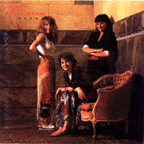
Speak is an album by the American musical trio the Roches, released in 1989 on MCA Records. The album contained two singles that had accompanying videos, "Big Nuthin'" and "Everyone Is Good". Another track, "Nocturne", was included in the 1988 film Crossing Delancey, which costarred Suzzy Roche.
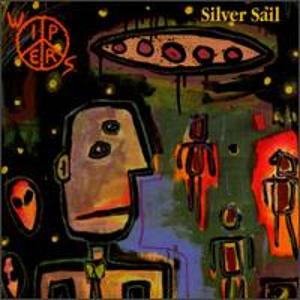
Silver Sail is the seventh studio album by punk rock band Wipers, released in 1993. After disbanding Wipers in 1989 and releasing a 1991 solo album, Sacrifice , Sage decided to release a new album under the Wipers name.

"That's the Way of the World" is a song recorded by the band Earth, Wind & Fire, released as a single in June 1975 on Columbia Records. The song reached No. 5 on the Billboard Hot Soul Singles chart and No. 12 on the Billboard Hot 100.
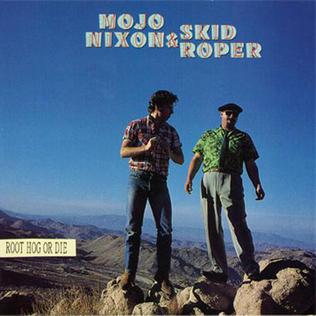
Root Hog or Die is an album by the American musicians Mojo Nixon and Skid Roper, released in 1989. It was the duo's final studio album. Nixon originally wanted to call it Bush Idiot Slime; he took "root hog or die" from Davy Crockett's autobiography. The duo supported the album with a North American tour. Root Hog or Die sold more than 50,000 copies in its first six months of release.

Struck by Lightning is a solo album by the English musician Graham Parker, released in 1991. It was Parker's best selling album of the 1990s, reaching number 131 on the Billboard 200 albums chart.

Who's Been Talkin' is the first album by the Robert Cray Band, released in 1980. It received little initial notice due to Tomato Records' bankruptcy. It has been rereleased a couple of times, including under the title Too Many Cooks.

All That May Do My Rhyme is an album by the American musician Roky Erickson. It was released in 1995 on Trance Syndicate Records, an independent record label founded in 1990 by King Coffey, drummer of Austin, Texas, band the Butthole Surfers.

Stevie Salas Colorcode is the debut album by the Native American guitar player Stevie Salas, released in 1990. Colorcode was the name Salas gave to his band.
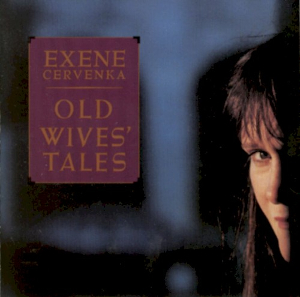
Old Wives' Tales is an album by the American musician Exene Cervenka, released in 1989. Cervenka told the Los Angeles Times that she considered the album to be "for and about women."

Smoking in the Fields is an album by the American band the Del Fuegos, released in 1989. It was the band's final studio album.

With These Hands is the third album by the American roots rock musician Alejandro Escovedo, released in 1996. It was his only solo album for Rykodisc.

Slow Dance is an album by the American musician Southside Johnny, released in 1988. It was marketed as a solo endeavor, although a few Asbury Jukes played on the album.

Very Greasy is an album by the American musician David Lindley, with El Rayo-X, released in 1988. It was Lindley's third studio album with the band.
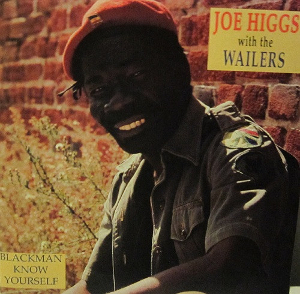
Blackman Know Yourself is an album by the Jamaican musician Joe Higgs, released in 1990. He is credited with the Wailers Band.

Burning Questions is an album by the English musician Graham Parker, released in 1992. It was his only album for Capitol Records. Backed by his band, the Small Clubs, Parker supported the album with a North American tour.

Hybrid Vigor is the second album by the American musician Webb Wilder, released in 1989. Wilder supported the album by touring with the Georgia Satellites. The first single was "Human Cannonball", which was a hit on college radio.
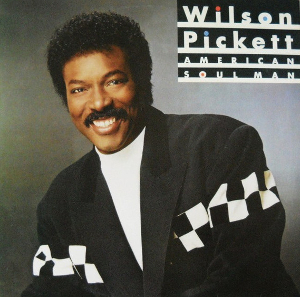
American Soul Man is an album by the American musician Wilson Pickett, released in 1987. "Don't Turn Away" was released as a single. The album was a commercial disappointment, in part due to MCA Records' acquisition of Motown.

King of the Blues: 1989 is an album by the American musician B. B. King, released in 1988. It was nominated for a Grammy Award, in the "Best Contemporary Blues Recording" category.

The American in Me is an album by the American musician Steve Forbert, released in 1992. Forbert was dropped by Geffen Records after the album's release. He supported the album with a North American tour.

The Silos is an album by the American band the Silos, released in 1990. A commercial disappointment, it was the band's only album for RCA Records. The Silos peaked at No. 141 on the Billboard 200. The band supported the album with a North American tour that included shows with the Jayhawks.




















